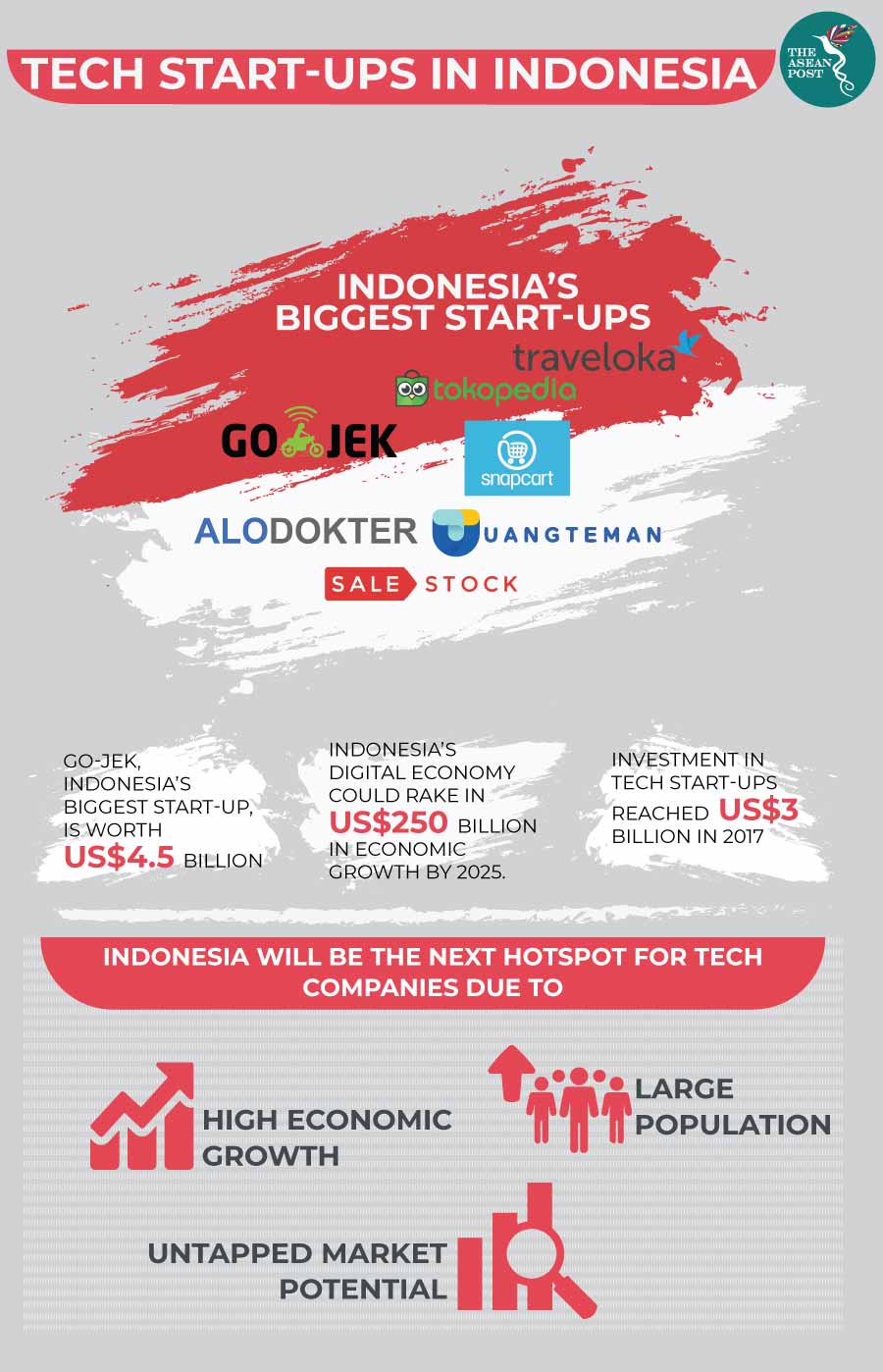Indonesia’s strong economic growth in recent years has led to a flourishing digital economy. Over the past decade, Indonesia’s economy has been steadily growing at an annual growth rate of at least five percent and is forecasted to become the fourth largest economy in the world by 2050 if this trend continues. Along with economic growth comes a growing, tech-savvy middle class.
The growing middle class in Indonesia is young and in touch with the latest trends and technologies. As such, the number of internet users in Indonesia is growing every year. A study from Hootsuite shows that Indonesia has 88 million people online with 79 million of them active social media users. In a report by McKinsey & Company titled “Unlocking Indonesia’s digital opportunity”, it was revealed that if Indonesia fully embraces digitalisation, it can gain an estimated US$250 billion in economic growth by 2025.
While growing at a healthy rate, Indonesia’s digital economy hasn’t reached its full potential as yet. There is one particular industry within this economy that is reaching new heights – tech start-ups. Indonesia’s tech start-up scene is quietly becoming one that we should all keep an eye on.
Some might say that Singapore – which has been dubbed the region’s Silicon Valley – currently has the best start-up environment in the region, however Indonesia has all the excitement. Unlike Singapore, we’ve seen some start-ups become major successes in spite of infrastructure and business environment challenges within the country. Singapore already has a strong ecosystem and support systems in place when it comes to nurturing a tech start-up, so much so that it even creates “zombie” start-ups that exist purely on government funding.
Meanwhile, seeing Indonesian start-ups flourish within the system, gain international funding and receive the recognition they deserve makes it all the more exciting.

One of Indonesia’s finest examples of a successful tech start-up is obviously Go-Jek. Go-Jek is one of the most successful start-ups in the region with an estimated value of US$4.5 billion. Recently, Go-Jek secured funding worth US$35 million from German insurance company, Allianz. This is part of a funding round by Go-Jek which has already attracted funding from Google and Tencent.
Tokopedia is another one of Indonesia’s early tech start-up scene success stories. Founded in 2009, Tokopedia is an online marketspace where users can buy and sell goods on its platform. Last year, Alibaba invested US$1.1 billion in the company.
Aside from these established start-ups, the start-up scene in Indonesia is thriving and dynamic. The start-ups there aren’t just focusing on safe and cliched industries like e-hailing or e-commerce but on a range of different sectors. For example, fintech start-up Uangteman deals in microlending and has just received funding worth US$12 million last year. There’s also Alodokter, an app that assists users with doctor appointments which received funding worth US$9 million last year.
In 2017, investment in Indonesian tech start-ups reached US$3 billion, double that in 2016. The numbers could rise again this year considering the mushrooming of tech start-ups in the country. Furthermore, Indonesia’s tech start-up scene has attracted the attention of international bank, Goldman Sachs. Goldman Sachs says that the next hotbed for technology companies will be in Indonesia due to the country’s huge population, high economic growth and “untapped market potential”.
Despite all the promise of its tech start-up scene, Indonesia is relatively slower compared to Singapore in providing the necessary support for its tech start-ups to grow. In September last year, Jokowi pledged to deregulate start-up rules to make it easier for individuals to establish start-ups.
However, this may not be enough. Jakarta needs to look to Singapore if it wants to harness the potential the country has. Deregulation is a step in the right direction but Indonesia also needs to look at ways it can offer grants and funding like Singapore’s government does.
The Indonesian government needs to be aware that better policies can inject new life into the country’s tech start-up scene and raise it to even greater heights. With the proper planning, funding and nurturing in place, who knows how many potential Go-Jeks there are out there just waiting to be discovered?
